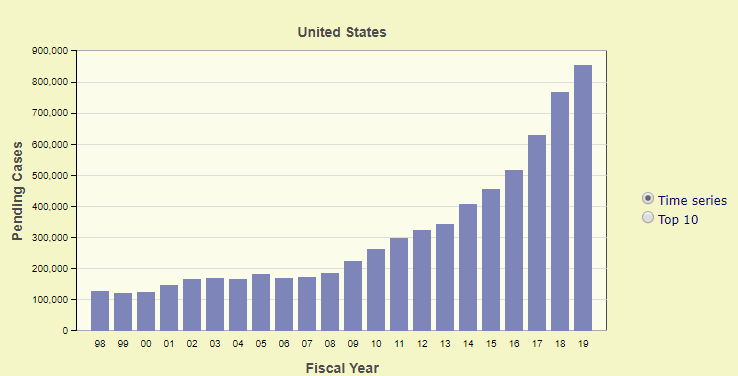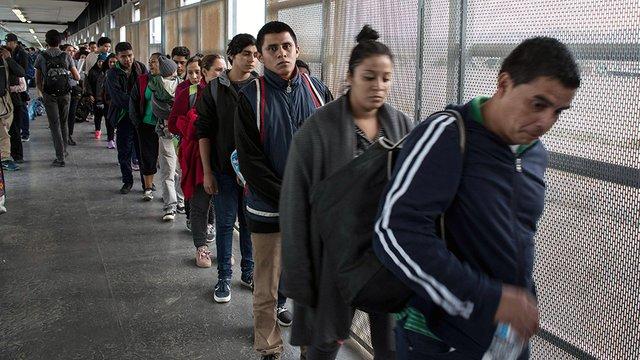US Attorney General William Barr on Tuesday struck down a decision allowing some asylum seekers to request release on bond in front of an immigration judge – a decision that expands ‘indefinite detention’ for migrants, some of whom must wait months or years for their cases to be heard.
US immigration courts overseen by the Justice Department have become overloaded – as the number of pending cases have jumped more than 26% since October 2017 from 655,807, to just under 830,000 according to the Transactional Records Access Clearinghouse (TRAC) of Syracuse University.

Last month, Imimgration and Customs Enforcement (ICE) said the average daily population of immigrants in detention topped 46,000 for the 2019 fiscal year – the highest level since the agency was created in 2003.
Even that figure likely understates the backlog because it doesn’t include the impact of the 35-day government shutdown in December and January. Because the system’s roughly 400 immigration judges were furloughed during the shutdown, some 60,000 hearings were canceled. Thousands were rescheduled, adding to the already long wait times.
The administration “has not only failed to reduce the backlog, but has eroded the court’s ability to ensure due process” by pressuring judges to rule “at a breakneck pace” on whether an immigrant should be removed from the United States, the American Immigration Lawyers Assn. — a nonprofit organization of more than 15,000 immigration attorneys and law professors — said in a statement. –LA Times
Barr’s decision applies to migrants who have illegally entered the United States as well as those apprehended within the country, according to Reuters.
Typically, those migrants are placed in “expedited removal” proceedings – a faster form of deportation reserved for people who illegally entered the country within the last two weeks and are detained within 100 miles (160 km) of a land border. Migrants who present themselves at ports of entry and ask for asylum are not eligible for bond.
But before Barr’s ruling, those who had crossed the border between official entry points and asked for asylum were eligible for bond, once they had proven to asylum officers they had a credible fear of persecution. –Reuters
“I conclude that such aliens remain ineligible for bond, whether they are arriving at the border or are apprehended in the United States,” wrote Barr, who added that such people can be held in immigration detention until their cases are eventually heard, or the Department of Homeland Security decides to release them by granting them “parole.”
Barr is delaying the effective date of the ruling by 90 days “so that DHS may conduct the necessary operational planning for additional detention and parole decisions.”
According to law professor Steve Vladeck of the University of Texas, the full impact of the decision is not yet clear because it will depend on DHS’ ability to expand detention capabilities.
“The number of asylum seekers who will remain in potentially indefinite detention pending disposition of their cases will be almost entirely a question of DHS’s detention capacity, and not whether the individual circumstances of individual cases warrant release or detention,” said Vladeck.
In early March, Immigration and Customs Enforcement (ICE), the DHS agency responsible for detaining and deporting immigrants in the country illegally, said the average daily population of immigrants in detention topped 46,000 for the 2019 fiscal year, the highest level since the agency was created in 2003. Last year, Reuters reported that ICE had modified a tool officers have been using since 2013 when deciding whether an immigrant should be detained or released on bond, making the process more restrictive.
The decision will have no impact on unaccompanied migrant children, who are exempt from expedited removal. Most families are also paroled because of a lack of facilities to hold parents and children together. –Reuters
Migrant rights groups are predictably livid over Barr’s ruling. The ACLU’s Michael Tan said that the rights group intends to sue the Trump administration over the decision.
Barr’s decision is the result of a review begun under former Attorney General Jeff Sessions in October.
via ZeroHedge News http://bit.ly/2Xm2qLh Tyler Durden
